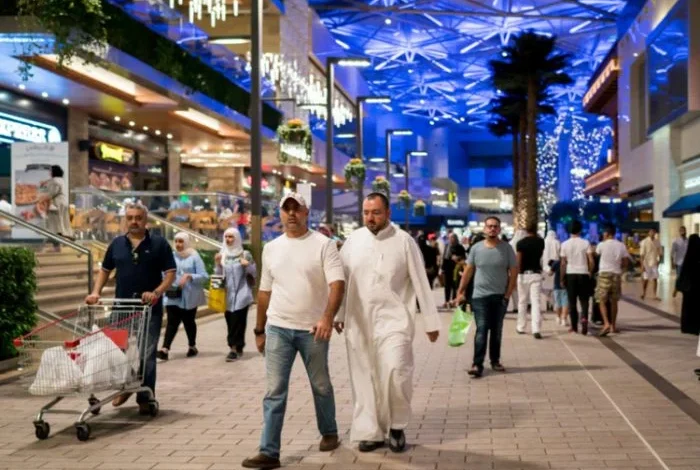A Kuwaiti generation born in prosperity

Kuwait is not only a rich country but also generously shares its considerable wealth with citizens. The cradle to grave welfare state and the ideal model of governance delivered by its rulers, are the envy of people around the world.
The government provides a monthly allowance to each citizen right from birth, free schooling all the way to university level, life-long medical care and water, electricity and petrol at highly subsidized rates. In addition, the government delivers high-quality essential foods at very subsidized rates — not only for the Kuwaiti citizen and his family, but also for the domestic helpers employed in the household. Besides the free plots of land distributed to citizens, the government also provides housing grants to build what would be considered luxury villas in other parts of the world.
And, then there is the social security net and guaranteed employment that every Kuwaiti benefits from. Kuwait is also a tax free society and the government collects no income taxes from Kuwaitis. Besides taking very good care of its sick and elderly, Kuwait also sends many citizens abroad for specialized medical treatment, training and higher studies at full government expense.
Kuwaitis are also blessed to have a unique style of government, which could be termed as the best of both worlds — a very generous government and a semi-democratic political system that allows them to make their voice heard through parliament. The result is a society that is one of the most open and democratic in the region.
Kuwait has also earned a remarkable name for itself among the international community, thanks to the benevolence of His Highness the Amir Sheikh Sabah Al-Ahmad Al-Jaber Al-Sabah, and his generosity in helping distressed people around the world, which has seen the United Nations conferring on him the unique and undisputed title of Humanitarian Leader of the World.
As an expatriate, one would wonder what issues parliament would have to debate given the cradle to grave benefits and largesse granted to citizens. But it appears that all is not well in this land of milk and honey. The well-intentioned, government moves to ensure and secure a continued comfortable life for citizens has been running into trouble for some time now.
Kuwaitis are used to a lavish lifestyle that includes luxury cars, villas, clothes and travel, and also an army of maids, drivers and helpers. However, this subsidized luxurious lifestyle is becoming increasingly difficult to sustain, as oil revenues on which the state depends for its largesse begins to dwindle. Changing citizens’ attitudes, lifestyle and, more importantly, curbing their complete dependence on the state for undeserved benefits, could be a step in the right direction.
Expatriates currently account for two-thirds of the population and they make up nearly 80 percent of the workforce in the country. Attempting to replace this large expatriate labor force with citizens is a non sequitur; even replacing a percentage of expatriates with citizens would require the nationals to imbibe many of the work cultures and skills that foreigners brought to this country and helped develop it.
A Bloomberg report published in 2018, for whatever it is worth, ranked Kuwaitis last in terms of the level of activity, and showed citizens topping the list of the world’s laziest people. The report revealed that 67 percent of the population in Kuwait could be classified as ‘lazy’ — the highest among countries covered by the World Health Organization.
Of course, a large number of hardworking Kuwaitis might disagree on the findings of this report, but that does not change the general impression that expatriates have regarding the work habits of their hosts.
An Expatriate
You can share your thoughts on
editortimeskuwait@gmail.com













